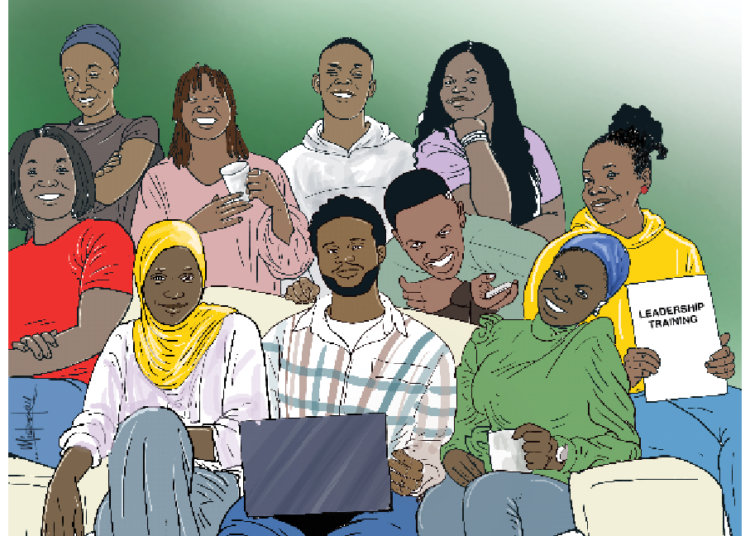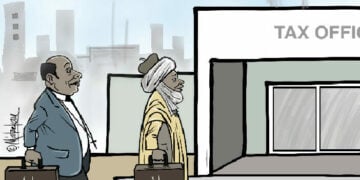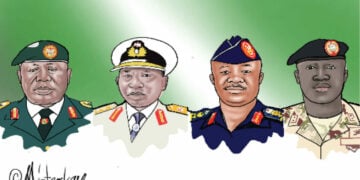| F |
riday, November 22, 2024, turned out a crucial day for postgraduate students from Kaduna State studying at the Abuja Leadership Centre, University of Abuja (UNIABUJA) as they convened a leadership training programme for no fewer than 100 school students, comprising mainly of head students and prefects from the three senatorial zones of the state.
The event, which is a part of the requirements for the postgraduate students of the centre, attracted the presence of the Emir of Zazzau and Chairman of the Kaduna State Traditional Council, His Royal Highness Alhaji Ahmed Nuhu Bamali, the special adviser to the deputy governor, Rilwan Hassan, who stood in for Dr. Hadiza Sabuwa Balarabe, delivered the opening remarks, among other guests that graced the occasion.
Leadership Is Key
Speaking on the essential qualities of leadership during the opening session of the clinic, the Zazzau monarch declared that good leadership cannot be realised when “Leaders choose to stay on the edge”, adding that, “A leader must be able to take decisive decisions that are beneficial to the people. Nepotism should be set aside. You have to look at competence above tribe and religion.”
Hassan (representative of the deputy governor) described the training as a unique opportunity for providing necessary skills required for mentoring students on leadership knowledge and the skills for mentoring youths for a brighter future of the country. Describing the need for inclusion as a key point in building confidence in the youth, the deputy governor called on the students to shun all forms of vices and pursue their educational career with vigour. She asked the youth to see themselves as future leaders and be fully prepared to take on responsible leadership tomorrow.
According to the deputy governor, “Youths are the foundation of the progress of any nation. Their energy, creativity, and determination are vital for positive change. Leadership, however, is not about merely holding positions. It is about responsibility, solving problems, and inspiring others.”
The minister of Environment, Mallam Balarabe Abbas Mohammed, lauded the programme organisers for complementing “government’s efforts at preparing the youth for leadership.” While calling on the participants to imbibe leadership skills for both the present and future growth of the country, he charged the students to take advantage of the training clinic to learn on what it takes to acquire skills for leadership.
In his remarks, the director, Abuja Leadership Centre, UNIABUJA, who is also the deputy vice chancellor (Administration) of the school, Prof. Philip Afaha, who was represented at the event by Prof. Joseph Golwa, noted that the programme was aimed at addressing the problems associated with leadership deficits in human societies. Prof Afaha commended the Tertiary Education Trust Fund (TETFund) for establishing the centre for the training of leaders for the nation.
The coordinator of the training programme and a PhD student, who is the immediate chairman of Jaba local government area of Kaduna State, Hon Nita Byack George, expressed joy at the interest shown by students and hoped that they would deploy the skills learnt and share the same with their fellow students.
Paper Presentations
The first paper presentation was titled “Patriotism and Inclusion in Leadership.” The participants were exposed to what it means to be patriotic and how the concept of inclusion works in promoting the spirit of togetherness in striving to achieve common goals.
The participants were also made to see how patriotism remains the anchor behind the evolution of inclusion where none is left in isolation in the evolution of effective leadership. To achieve this, school prefects were taught to eliminate all forms of discriminatory practices in order to carry along vulnerable groups, across gender, religious and ethnic divides in promoting inclusion in the school environment.
The second paper was tagged “Leadership as Citizens’ Role”. The participants were exposed to how citizens shape society on the path of evolving the required leadership for growth and success. Prefects were not only taught the essence of basic skills for effective citizenship but also exposed to real life examples of what constitutes the role of citizens in providing leadership.
The third paper was titled “Ensuring a People-Oriented Leadership”. The paper undertook various definitions in various types of leadership and the strategies involved in arriving at a people-oriented leadership that is democratic in nature. Being people-focused, its major strength is for the growth of the people, aiming at their common good. Roles of leadership in realising collective dreams of the people were also highlighted. The paper examined the various challenges associated with the people-oriented leadership that is democratic in nature.
Catching Them Young
The recently concluded Kaduna State Youth Leaders’ Clinic provided the participants the opportunity of understanding various concepts as they relate to patriotism, inclusion and the roles of the citizens in evolving effective leadership for the growth of nations and the school environment. The event also exposed the students to the irreplaceable need of embracing inclusion in carrying everyone along in the management of human affairs.
Considering the robust attentiveness demonstrated by the participants and the questions raised by students during the event, it was obvious that the goals in exposing them to leadership skills were realised. There were also the presence of some top security officials, including the Economic and Financial Crimes Commission (EFCC) that assisted in opening up the young mind on how to avoid corruption in order to be good leaders of tomorrow.





